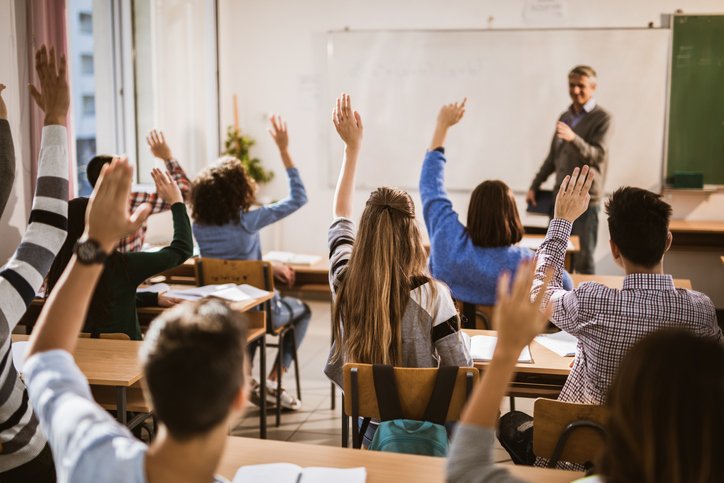Sit down, relax, and let me take you on a journey that highlights the importance of Physical Education (PE) in schools. It is not just about sports or games, but it encompasses many areas that contribute both to the physical and mental growth of a student. So, why should we pay so much attention to PE classes? Let us explore!
Essence of Physical Fitness
Physical Education builds a foundation for a healthy lifestyle. Sedentary lifestyles have become a significant concern today, contributing to obesity and related health issues. PE gets students moving, improves heart health, enhances muscle strength and helps to maintain an optimum body mass index.
Fostering Social Skills
Physical Education plays a key role in improving social skills among students. Playing as a team helps them understand cooperation and teamwork. It encourages students to communicate effectively with each other and teaches values such as respect, empathy, and sportsmanship.
Boosting Self-Esteem
A healthy body can lead to a healthy mind. Achievements during Physcial Education can provide a significant boost to self-esteem and confidence level of students. Celebrating their little victories can make them feel good about themselves.
Importance in Mental Health
Participation in physical activities has been proven to reduce stress, anxiety, depression, and enhance mood. The release of mood-enhancing endorphins during exercise improves mental health which is crucial for overall wellbeing.
Inculcating Discipline
Physcial Education also instils discipline in a student’s life by teaching punctuality, following rules, attentiveness, and respecting others. These qualities are essential not only for sports but also in all academic subjects and future career opportunities.
Value of Resilience
During any game or sport, students face challenges and overcome obstacles. This teaches them the importance of resilience, developing their ability to bounce back in difficult situations. It can substantially help them in dealing with life’s trials later on.
Improving Concentration
Physical activity enhances the ability to concentrate, which is essential for learning. Regular physical activity brings about better focus and attention in classroom environments and helps improve academic performance.
Nutrition Education
Vital nutrition education is often a part of PE curriculum, educating students about the importance of a balanced diet along with physical activity for maintaining general health. They learn to make healthier food choices that can prevent diet-related illnesses and improve their energy levels.
Developing Leadership Skills
A Physical Educaton class offers plenty of opportunities for students to show leadership. Whether it’s a team captain role or taking the initiative in a game, these experiences help mould future leaders.
Motivation for Lifelong Fitness
Physical Education promotes the idea that staying active is more than just school activities. In these classes, students learn to value fitness and carry that passion into adulthood, leading to lifelong advocacy for a healthy lifestyle.
Creativity Spurts
PE classes require problem-solving skills as students have to devise strategies to win games. This constant need for creative solutions helps develop their innovation skills.
The Educational Element
In addition to boosting physical health, Physcial Education also provides an educational element by teaching rules and strategies of different games and sports. Students are exposed to a new learning environment outside their typical classroom setup that enhances their understanding of other cultures and societies.
Why Some Neglect PE
Despite the many benefits, some schools have been neglecting PE as they prioritize academic achievements. It’s important to understand that an imbalance can actually hamper overall student development.
Action For Better Implementation
Proper infrastructure, trained staff, regular assessments, and a PE-friendly curriculum are needed for effective implementation of Physcial Education in schools. Giving PE similar importance as academic subjects could lead to a well-rounded development of students.
The Need For Reconsideration
Policy makers, educators, and parents need to rethink about providing balanced attention towards Physical Education along with academics. The mental, physical, and social benefits it brings to young children and teenagers cannot be ignored.
Moulding Global Citizens
A well-rounded education with an equal focus on both academic and physical education contributes to the growth of global citizens who are fit, adaptive, socially aware and ready to face the challenges of tomorrow’s world.
End Remarks
The essence of bringing Physical Education back into highlight is more than just games—it’s about creating lifelong healthy habits and grooming individuals holistically for future success. Considering the role a sound mind in a sound body plays in overall human efficiency, accepting an all-inclusive educational practice might be our best bet towards growing better future generations.





